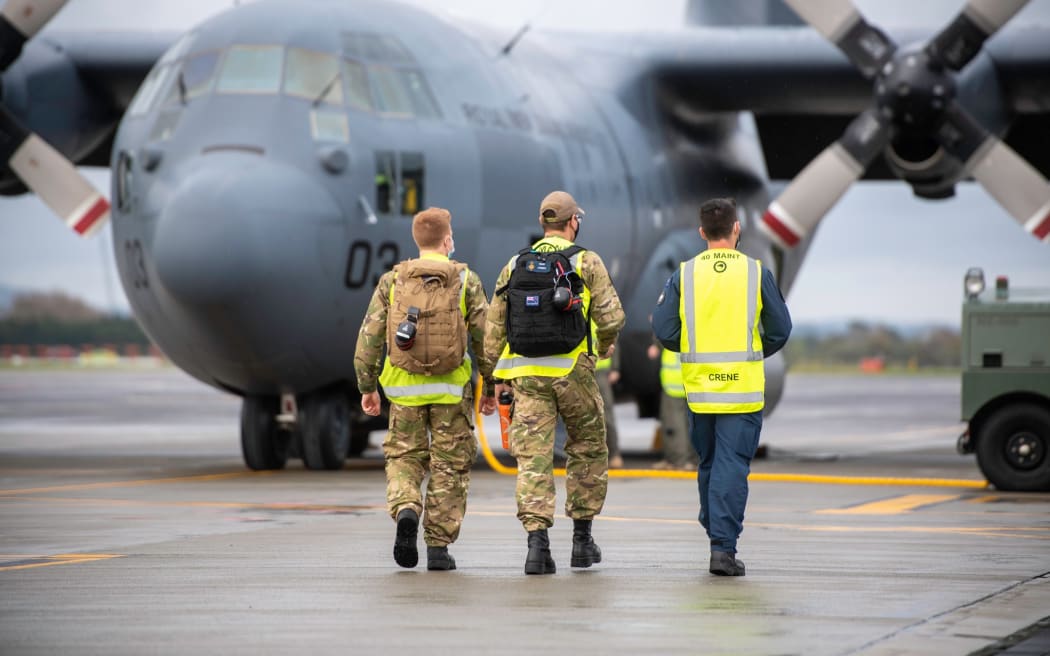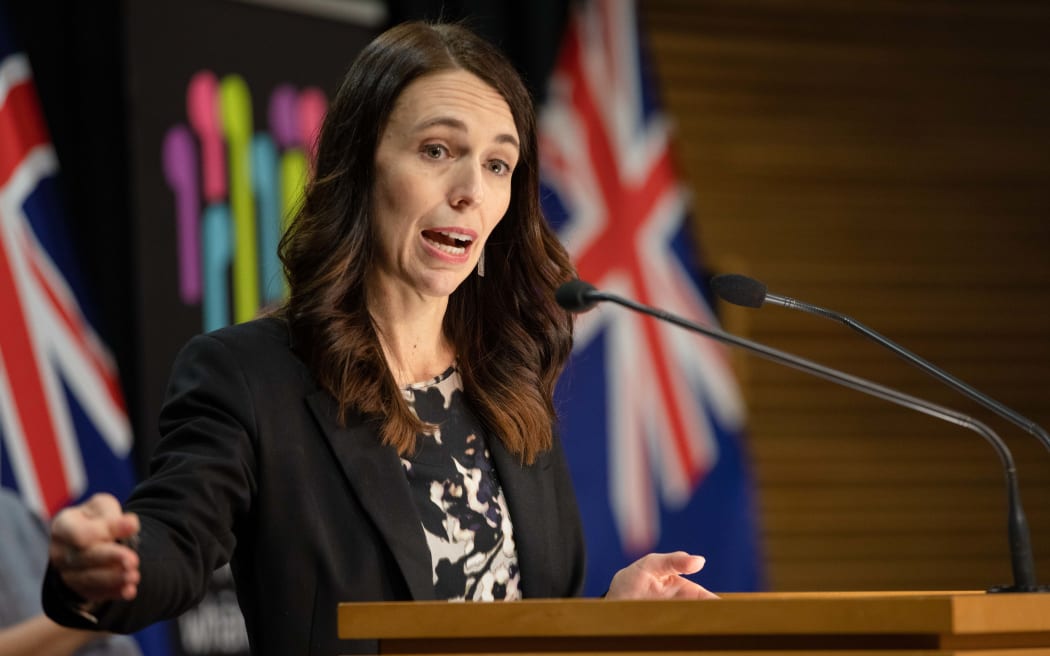Cabinet has confirmed New Zealand will send a further 30 NZ Defence Force personnel to the UK to train Ukrainian in using a light artillery gun, Prime Minister Jacinda Ardern says.
Training support for Ukraine
Ardern said Cabinet had confirmed New Zealand will send a further 30 NZ Defence Force personnel to the UK until the end of July.
They will be there to help train Ukrainian soldiers in using the L119 light artillery gun, which was only used by a handful of countries, Ardern said.
"New Zealand has been asked specifically to provide the training team for this purpose."
The training of Ukraine soldiers was another way New Zealand could support Ukraine, and there were very few armed forces that could provide this specific training, she said.
Minister of Defence Peeni Henare said it would be much welcomed by our international partners, and he would be meeting with the Ukraine Contact Group again - covering about 40 countries - about midnight tonight.
Chief of Defence Force Air Marshall Kevin Short said they expected about 230 Ukrainian forces to be trained.
It was thought it would take a week for a gun crew to be trained, but that would need to be tested and adjusted once personnel were on the ground, he said.
They planned to train over 30 gun crews, and a second group may require training too.
Air Marshall Short said the NZDF was already operating outside Ukraine to deliver military aid and personnel.
Training individuals and providing equipment was "completely acceptable internationally", he said.

NZDF personnel prepare to fly on a Hercules to Europe to help Ukraine's defence. Photo: NZDF / Facebook
The 30 personnel would remain in the UK throughout the training and would at no point enter Ukraine, Ardern said.
No request had been made for forces to do more than just training, she said.
READ MORE
- New Zealand sending 30 Defence Force personnel to Europe to train Ukraine's Armed Forces
- Russia-Ukraine war: New Zealand Defence Force mission underway in Europe
- New Zealand to send Air Force Hercules to Europe to assist Ukraine military aid effort
- New Zealand dispatches 50 troops to Europe to assist with logistics of moving weapons into Ukraine
"We are taking these requests, giving them full consideration, and making sure that they sit within the parameters ... that they fit within our international obligations.
"We'll take every request in that way, looking at our independent foreign policy but also the parameters of our engagement with our defence force which we're very careful about."
Their transport will be managed by the UK, along with transport of training and munitions equipment including aiming systems.
Ardern said she took a different perspective than former NZ First Defence Minister Ron Mark, and totally rejected that New Zealand's support for Ukraine could impact trade.
She had a good working relationship with Mark, but her view was politicians being present on the ground would not greatly affect New Zealand's engagement with support for Ukraine, she said.
"There's a balance to be struck there, our view has been that our engagement at a senior level that we've had has given us what we need to understand the situation on the ground and provide the support that we need to."

Jacinda Ardern Photo: RNZ / Angus Dreaver
US trade and tourism mission
Ardern said on her trip to the US, her second trade delegation overseas, she would be taking a simple message that New Zealand is open for business and recreation.
"I want to make sure US businesses, tourists and skilled workers have New Zealand at the forefront of their minds. The US is our third-largest export market and visitor market by arrivals with two-way trade worth $18.5 billion last year."
US businesses were planning multibillion-dollar investments in cloud computing in New Zealand, which "will unlock big opportunities for our digital exports in the world", she said.
Ardern told Morning Report today that if a visit to the White House to meet US President Joe Biden was arranged, trade and the Ukraine war will be top of the agenda.
The prime minister, who is back at the Beehive today after a week at home with Covid-19, said her illness had complicated a possible meeting with Biden because complex protocols around Covid-19 clearance need to be met.
Her trip includes:
- In Washington, meeting senior members of congress
- In New York, meeting with the UN Secretary-General, US investors, and attending a launch event for sustainable meat exports
- Deliver the Harvard Commencement speech at Harvard University
- Meeting with Twitter, Amazon Web Services and Microsoft to discuss investment in NZ, skills development for New Zealanders, digital cooperation, and further Christchurch Call objectives
- Before leaving for the US this afternoon, she will be taking part virtually in the launch of the Indo-Pacific Economic Framework with US President Joe Biden and the Prime Minister of Japan
Considering the Indo-Pacific Economic Framework, Ardern said New Zealand had to view on the CPTPP with both advocacy and realism.
"I think what's important is we're signalling our desire to be at the table in those early conversations so that we're able to shape it ... it's not what's been pitched as a traditional trade arrangement but that doesn't mean it can't ease the pathway for trade in some ways, it doesn't mean that it can't make progress on sustainability or digital issues."
The change of government in Australia is also bound to be discussed at Cabinet, with Ardern among the first world leaders to congratulate Labor leader Anthony Albanese on his victory.
Ardern said she has had several engagements with Australia's new Prime Minister-elect Anthony Albanese, and spoke with him on Saturday when he was on his way to give a speech to supporters, and they spoke again the following day for a much longer period.
New Zealand and Australia might be mates but the relationship has taken a frosty turn of late over Australia's 501 deportation policy.
But Ardern said today: "What you can see though already is an acknowledgement from the new Prime Minister of some of the things that have been causing friction in our relationship ... even that acknowledgement of that friction I think is helpful."
There was overlap between New Zealand and Australia for sharing policy ideas on climate change and regional pressures, she said.




